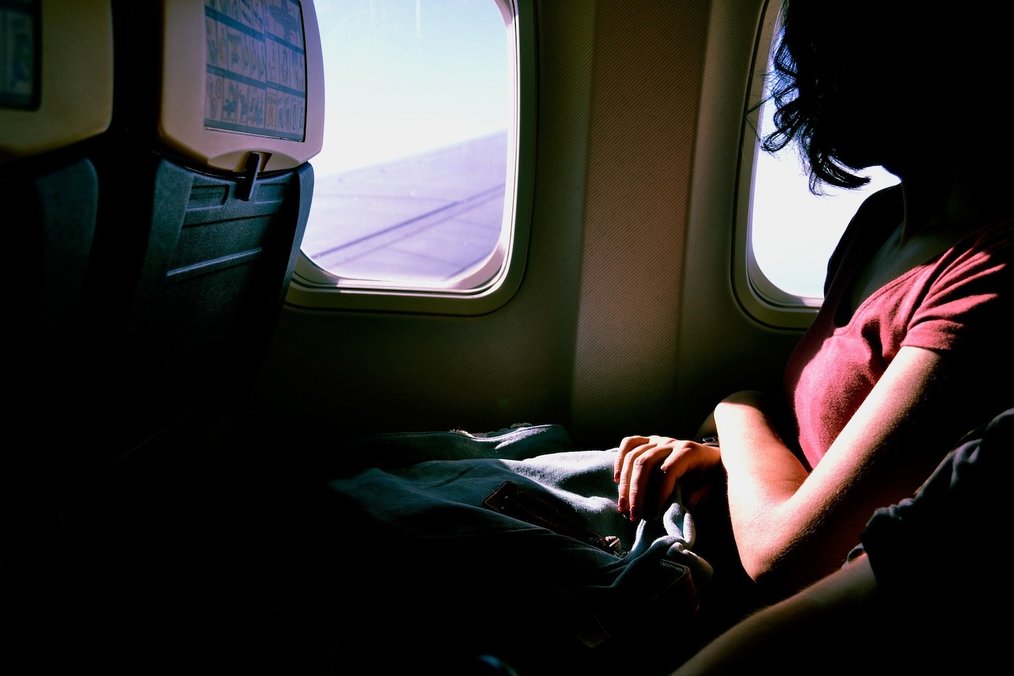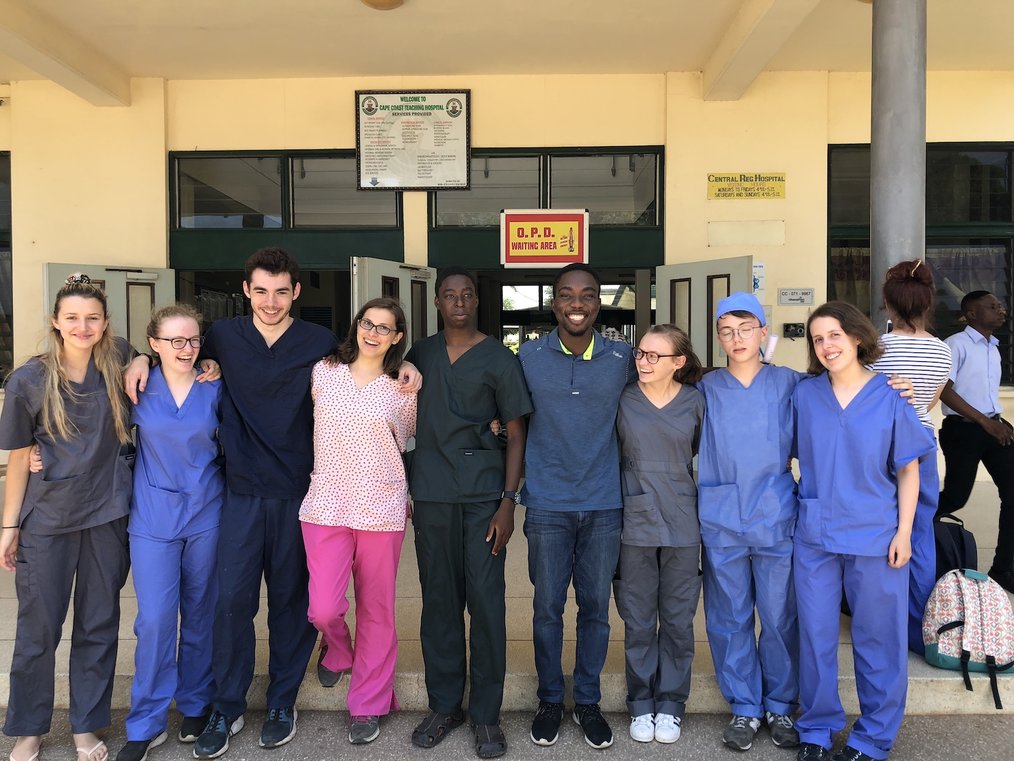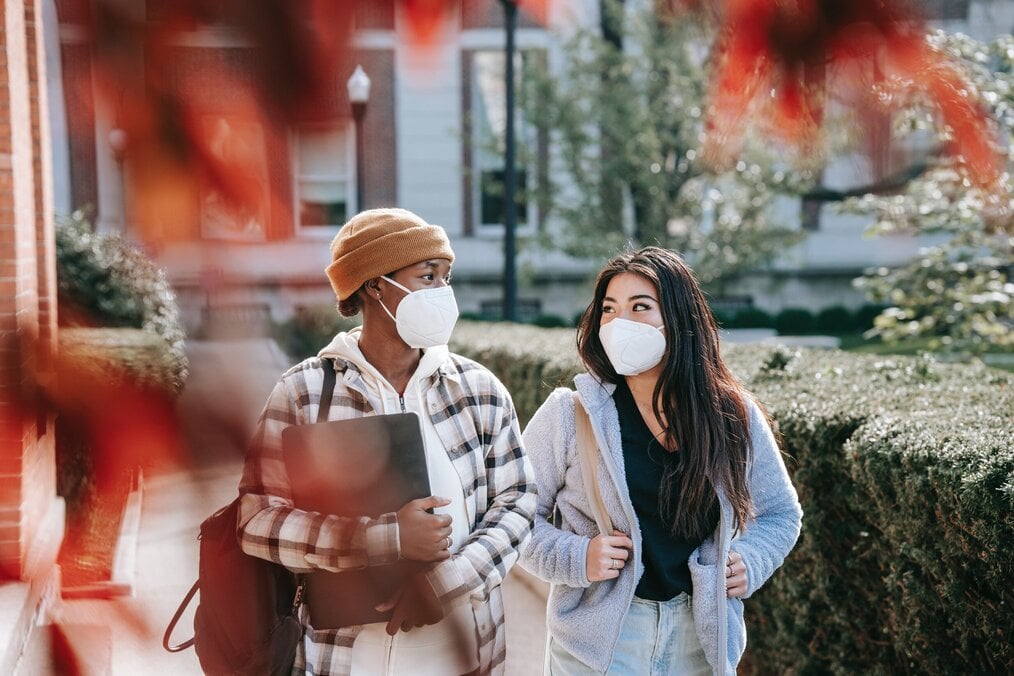COVID-19 and Travel: Frequently Asked Questions
We're answering your most frequently asked questions about coronavirus (COVID-19) and travel, including questions about going overseas, airline travel, vaccinations, programs, and remote work.
TLDR
Short on time? 🕰 We get it -- Here's what you need to know about COVID-19 and traveling during this time.
- Though countries are slowly starting to open their gates again for travel, it’s still important to take proper safety precautions. The CDC strongly recommends travelers be fully vaccinated and wear a mask while traveling.
- In 2022, many programs are running, but with continued safety precautions and requirements for travelers.
- Remember, even if you aren’t showing any symptoms, you could still be a carrier of the disease. It’s important to wash your hands, wear a mask, and maintain basic hygiene so that you don’t risk spreading COVID-19 to individuals who may face more severe health consequences.
- For the full list of travel advisories by country, explore travel.state.gov.

As the news of the coronavrius and its variants continues to spread, but travel regulations start to loosen, it’s understandable that as travelers and global citizens you have lots of questions. The health and safety of our community is of utmost importance to us, and so we’ve compiled a list of Frequently Asked Questions to address some of these pressing concerns.
With vaccines becoming more readily available, more countries are opening up travel again. We know that many of you may already be traveling or have upcoming travel plans and so we want to provide some tips on how best to move through the world during a global health crisis. While we can’t predict what’s going to happen in the coming days and weeks, we’ve done our best to answer some of your most salient concerns below.
I have upcoming plans to go overseas. Should I cancel them?

This is the question at the forefront of all of our minds. As fellow travelers, we understand the stress (and sadness!) of potentially canceling an upcoming international trip because of COVID. The reality is that the answer to this question really depends on where you’re going and your personal health risk level.
There are a number of countries that have banned international travel to and from their country. The Center for Disease Control (CDC) has placed Travel Health Notices on certain high-risk countries, labeling them on a scale from Level 1 (low risk) to Level 4 (very high risk).
Countries on the Level 4 list, such as Costa Rica, Thailand, United Kingdom, and more highly advise against all non-essential travel, regardless of vaccination status.
It’s important to note that the countries on these lists change quickly, so if you are making travel plans, we encourage you to check them regularly.
In deciding whether or not to move forward with your travel plans, it’s important to keep up to date with country-specific information from reputable public health organizations such as the CDC and the World Health Organization (WHO).
The CDC has also released information about people who are at higher risk of serious illness from contracting coronavirus. If you are an older adult or if you have a serious chronic medical condition—such as heart disease, diabetes, or lung disease—you will want to take more precautions when thinking about traveling overseas. If this sounds like you, it might be in your best interest to reconsider travel for the time being.
Keep in mind that countries around the world are suspending travel at the moment. If you are currently in your country of residence and you choose to leave, there is a possibility that you will not be able to return while governments try to contain the outbreak.
Do I need the vaccine to travel?
While getting vaccinated is not mandatory, the CDC strongly recommends only fully vaccinated passengers should travel internationally.
If you choose not to get vaccinated, you may be required to show proof of a negative COVID test in order to travel, and may have to participate in a mandatory, extensive quarantine period. If you’re traveling somewhere outside the US, it’s important to stay up to date with the country’s guidelines, as regulations vary around the globe.
To help vaccinated passengers bypass quarantine and inform all travelers about COVID-19 measures, the International Air Transport Association (IATA) launched the IATA Travel Pass, a digital vaccine passport, designed to contain information relevant to travelers and health officials.
It is currently available for download, but cannot be used unless required by the passenger's airline.
The following information can be found on the app:
- Country-specific entry, testing, and vaccine requirements for travelers
- Locations of nearest testing centers
- Lab results from authorized testing centers
- Passenger-specific health information including vaccine status and Covid test results, which can be shared with travel officials and automatically checked by the app to verify they meet the destination’s requirements
If I get the vaccine, will I be able to travel without a mask?
The answer is still no. Right now, the CDC still recommends vaccinated individuals to continue wearing a mask indoors in public spaces. Even though the vaccine may reduce your chances of getting sick, vaccinated people can continue to carry and transmit the virus.
Is it safe to be on an airplane right now?

There is a lot of fear surrounding airplanes and airports at the moment, and specialists suggest that much of this concern might be misplaced, especially if you take some basic precautions.
According to the International Air Transport Association (IATA), you have a higher risk of contracting the disease in a shopping mall or an office than on an airplane: “The air supplied to the aircraft cabin is either fresh or is filtered through filters of the same efficacy (99.97% or better) in removing viruses as those used in surgical operating rooms.”
In fact, unless there is a sick passenger seated next to you, the chances are pretty low that you will contract the disease from someone in a different part of the plane (and this goes for the flu and common cold as well!).
To help protect yourself, infectious disease specialists recommend taking some basic precautions, including washing your hands, disinfecting surfaces (like your seat back pocket, tray table, and the restroom door handle), and avoiding contact with sick people.
Getting vaccinated and wearing a face mask while traveling are also effective ways to minimize your chances of contracting or spreading the virus.
I’m currently overseas (traveling, working, volunteering, studying). How can I best protect myself? How can I still make the most of my time abroad?

While this is quite clearly not an ideal time to travel, for some of us, the choice is out of our hands. Whether you have to take a trip for an important event or business meeting, or you’re already abroad, either traveling or living, many folks are having to take precautions while overseas.
A good rule of thumb here is similar to any travel advice you’d receive: do as the locals do. If you are currently in a city or country that has been heavily affected by COVID-19, it’s likely that restaurants, bars, shops, museums, and the like are all shut down.
You probably don’t see very many people strolling through the streets. If that’s the case, take a cue from the local community and practice social distancing. Pay attention to local media outlets and consider following your local embassy, the WHO, and the CDC to make sure you’re staying informed on the situation.
If you’re forced to hunker down in your Airbnb, make the most of your seclusion! Maybe use your ample free time to learn the local language, read up on the history and current events of the place you’re in, or try to cook a local dish. If you can get out of the city, maybe look into nearby hikes or activities in nature that would allow you to be active and explore the country without being in close proximity to tons of people.
If you’re in a place that is not as affected by the disease, again, pay attention to official sources. If life is continuing as normal, you’re probably safe to explore and enjoy your trip! Just make sure to take basic precautions by wearing your mask, washing your hands, and disinfecting surfaces as necessary.
The key here is to strike a balance between enjoying your time overseas and practicing safe health protocols.
I’m young and healthy! Does the coronavirus outbreak really affect me?
The simple answer to this is, yes. While most healthy individuals will not experience a severe illness if they contract the virus, we all must do what we can to protect more at-risk populations.
Remember, even if you aren’t showing any symptoms, you could still be a carrier of the disease. It’s important to wash your hands, wear a mask, and maintain basic hygiene so that you don’t risk spreading COVID-19 to individuals who may face more severe health consequences.
I'm a prospective traveler! What should I ask my program provider before I travel abroad?

Many programs are currently running/continuing to run in 2022 and are following extra precautions to ensure safety for staff and participants. From pre-departure requirements to safety protocols while abroad, it's important that you are equipped with all of the necessary information regarding travel and COVID-19.
Below is a checklist of important questions you should ask your program advisor, if you're looking to travel with them:
- What are the current health requirements for participants? Will participants be required to show proof of vaccination, undergo a COVID testing, and/or a quarantine period upon arrival?
- What protocols are in place, in case there is a lockdown while we're abroad?
- Will I be eligible for a full or partial refund if the program gets canceled, due to COVID-19?
- How much support is provided if I become sick/exposed to COVID-19 while abroad? Will the program organization provide alternative accommodations or special housing for participants who need to quarantine? Are there on-site medical professionals who can provide support and help if I seek medical treatment while in quarantine?
- What procedures (social distancing, disinfection between classes, limiting class sizes, etc.) are the academic facilities taking to ensure safety among staff and participants
- If I am studying abroad and on-site classroom instruction is suspended due to COVID-19, will students be able to continue/fulfill the course virtually?
Whether you're a prospective student preparing to go abroad, or already have your program booked and planned, make sure to stay in touch with your program advisors and stay on top of health updates and policy changes.
I’ve been instructed (by my employer, university, organization) to work from home. Help! What are the best strategies to work remotely and not go stir-crazy?

Many universities and organizations across all sectors have instituted a work-from-home policy in order to curtail the spread of the disease. While to some this may seem like a great opportunity to never get out of your pajamas, to others, this is creating a whole new set of worries.
If the thought of working remotely stresses you out, keep these tips in mind:
- Don’t isolate yourself! Internet work tools like Slack, Zoom, and Google Docs can keep you connected with your coworkers even when not in the same space (and most offer free versions of their services!). If your office or school doesn’t already use these tools, take the lead and suggest that you find a way to stay connected virtually!
- Make a work station! Don’t underestimate the importance of having a space that feels distinct from the rest of your home. We know it’s tempting to work in bed or on the couch (and ok, let’s be real, we all do that sometimes), but if you’re going to be working from home for an extended period of time, you’ll want to create a distraction-free space where you’ll feel productive and energized. Maybe you claim part of the kitchen table or maybe you set up a makeshift desk in front of a window—find what works for you and make it your own.
- Be careful about working too much! This might sound counterintuitive (working too much…from home…where I have unlimited access to Netflix…?), but the truth is that many remote workers find that they burn out at a faster rate because their day is totally distraction-free. At an office, you might take a lunch break or stop by the kitchen for a quick snack and chat with your coworkers. But at home, it’s hard to mimic those natural interruptions to your day. Build breaks into your schedule and make sure to take time for meals.
Is there an alternative if I want to study abroad but don’t want to travel?
It’s understandable if you aren’t quite ready to give up the comfort of your home for a plane seat, which is why it’s worth exploring our virtual study abroad programs! Whether you’re interested in learning about art and activism in South Africa, or discussing sustainability practices with students from around the world, there’s a virtual study abroad program waiting for you.
Explore these highly-rated programs offering virtual study abroad opportunities:
Final thoughts on coronavirus and travel
Since it first made headlines in early January, the coronavirus has been mentioned in the media over 1 billion times. There is a ton of information out there. It can be hard to parse what advice to take, what to disregard, who to listen to, and how to react. Trust your instincts when it comes to consuming information—the CDC and WHO are reputable health organizations and they provide daily updates.
Make sure that you’re not only keeping yourself informed but that you are consuming information that is vetted and accurate. And maybe, most importantly, try not to place blame. Just because the virus originated in a certain location does not mean that those people are responsible or that everything coming from that country is tainted.
Our advice for all global citizens in this time: try not to panic, practice empathy, and remember that this too shall pass.
This article was last updated in January 2022.
